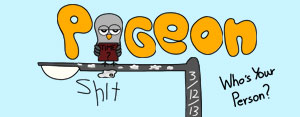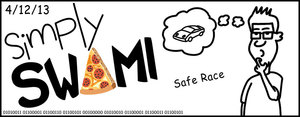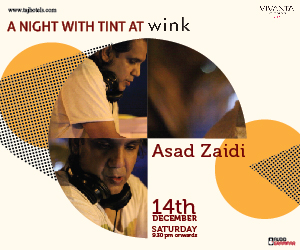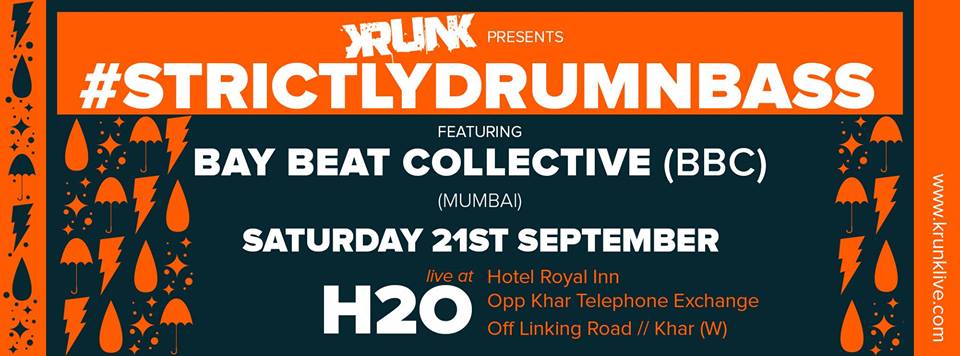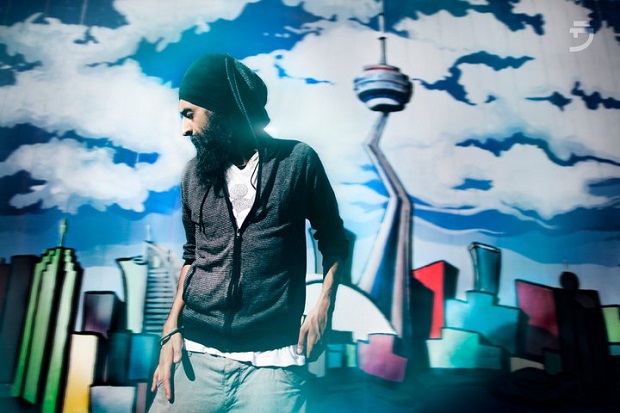
Picture: Digitology
When it releases, chances are that his book may find a slot in the stripped-of-all glamour and “shades of grey” self help section, but for Canada based MC, writer, musician, poet Kanwer Singh aka Humble the Poet, this may very well be a book of life. “Unlearn – 101 Things To Let Go To Gain More” is stuff Singh had to unlearn to live life. “Life is not a Hindi movie, there are no fairytales. Expectations lead to disappointments. Historically speaking, the world has never really been a fair place to survive,” says the poet, capturing our attention with his humble-isms, points to ponder that according to him are not mind shattering at all, in plain sight, age old wisdom, for us to claim. We met Singh on his first performing tour in Chandigarh, this being his second such in India when he performed at the Bacardi NH7 Weekender in 2011 and also appeared on the TV jam show “The Dewarists,” recently when he took the stage in front of unsuspecting, trance-pop fed teenagers in the city’s foremost nightclub Blue Blazer. Singh also just released his new album, titled “F.E.A.T.H.E.R.S.” that dropped worldwide today.
Watch the new music video of LASSO from the album:
It’s all there, he smiles, all in the texts of the intellectuals we guard as religious. Coming from this lanky Gursikh lad, whose turban seems heavier than his torso, and whose beard flows like a rivulet, the comment appealed even more. To a non-Gursikh, Singh’s speak-your-mind confidence can very well be attributed to the advantage of his appearance, one that questions its dictating authority, contradicts its teachings and dares it with a personal thought. The fact that he can speak with such candidness and honesty is because he was born into it.
“Raised in a dogmatic Sikh institution, I’ve been thoroughly educated in Sikhism, its philosophy, Gurbani and on a religious diet of kirtan classes, regular visits to Sikh camps,” shares Singh. Sikhi, he agrees, is a beautiful philosophy. “It’s unfortunate though that these priceless pieces of literature, history and ideas have been reduced to religious texts,” he rues. Through the years, through his observations and experiences, and his writings, Singh finally found his voice in 2008 when he went on stage with his explosive poetry. He had grown up, and he credits his being a teacher and teaching third graders for it. “Children are empty vessels, and while teaching them, I realized how much crap was poured in my head as a kid,” says Singh, throwing light on his elementary steps towards unlearning.
And while there was always Gurbani, Shiv Kumar Batalvi and Bulleh Shah as inspiration and guiding lights, another one was children’s author Dr Seuss. “He has the talent of presenting the most complex of theories in the most simplified of versions,” says Singh, presenting his rap too in an easy to digest capsule. “Guru Nanak was the original rapper…look at Gurbani, everything in it rhymes,” he notes.
Once he grew in the rap circuit, Started started finding it difficult to straddle two careers. His sleep and health was taking a toll, and he ultimately decided to give up teaching and venture full time into rap and poetry. Humble was a name he used on stage, and it acquired a cult status as Humble the Poet. “Because that’s who we are,” says Singh, giving the earliest influences in his religiously inclined home an identity. “Sikhism teaches us that ego is our biggest enemy, and hence, humble,” he explains, his rap ranging from issues he finds interesting, about love and personal struggle, social-political commentary to plight of immigrants in Canada, Palestine, domestic violence, supporting the desi gay community in Canada, the 1984 riots, farmer suicides etc. “Hip hop started out as a voice of and for the people, and I feel rap is associated only with the Blacks. That’s not the case. We have to move beyond the stereotypes, the clichés, and see what rap really is. Emceeing is evolution of rap.” And the reaction to a Gursikh rapper, we prod. “A spectrum of reaction – from acceptance to awe to rejection. You see, the journey of an artist is an experimental one, and I’ve got support from the most unlikely of corners, the mother of a friend who encouraged me to rap.” According to Singh, generation gap has nothing to do with mindsets. “It’s either closed minds or broad minds.” Of course, his mother reprimands him like a mother does, and his father’s wisdom is reflected in his silence, but then that is because he is the “useless Punjabi boys spoiled beyond belief by his folks, especially, mum. And I have three – my mum plus two sisters. Punjabi boy as a species is useless, who develops a mama complex…you will never see a Punjabi boy starve to death,” he laughs.
At one point in his career, he was accused of”‘being a Uber Khalistani, a secret agent for the Government sent there to pollute the Sikh community.” With his body inked with a map of Punjab and lines like “warriors are born and soldiers are made,” “rahao,” and “freedom is having nothing to lose,” Singh flashes a sage like smile, “You really can’t expect people to understand you the way you want them to…you cannot judge me by the length of my beard or size of my turban…it’s a superficial concept, perpetuated by some giant fear of losing an identity. I am a proud Sikh Punjabi.”
A cultural contributor and not a cultural participator, Singh’s thepoetproject.tumblr got many hits, and he feels questions are more important answers. “I find my place because I respect it. When has the society not been conflicted, be it any age, it feeds on fear. But my neighbourhood, its ethnic diversity, sparked creativity. Meeting people too, for every person is an ever expanding universe one can learn so much from,” says Singh adding how travelling bursts a lot of bubbles and biases. Humble, for him, is not just an adjective. “It’s also a verb, like humbling experiences.” He consciously makes his music catchy and peppy, to hook people to it, and then make sense of it. “Knowledge is irrelevant if you don’t hear it.” Agreed, but even Yo Yo Honey Singh lures in people with his music, and no matter how questionable his lyrics are, he attracts crowds. “Don’t blame Yo Yo Honey Singh. He is sound musician, but singing what people want. It’s the Barbara Streisand Effect. The crusade against him is only feeing his popularity.” Having said that, Singh asserts that there are no quick hits to life.
Among his latest works, he features in a film titled “Balbir the Barber.” With a flowing beard and a turban, Balbir may come across as a misfit in the barber world, but he sure makes a snippy statement. Singh, who has co-written this Canadian Punjabi comedy, can’t wait to play the lead. His song with Sikh-Canadian producer, Kanwar Anit Singh Saini, a.k.a. Sikh Knowledge, “Baaghi Music” has been a rage since it’s release two years ago. India embraced him when he collaborated with Monica Dogra and Midival Punditz for “The Dewarists,” and today, India ranks number two in his rising fan following.
With documentary on him (“Humble the Poet” by Brendan Naumas), and three mix tapes down, Singh is writing another film based on a true story on original immigrants to Canada. “It happens the same time around the Komagata Maru incident, the events led to it because there is always a trigger. Truth is really never that simple, and it is tough documenting this one, and I am doing it with the one who is telling the story, a half Punjabi Canadian who is witness to this historic event.”
You can buy F.E.A.T.H.E.R.S. and stream here:





